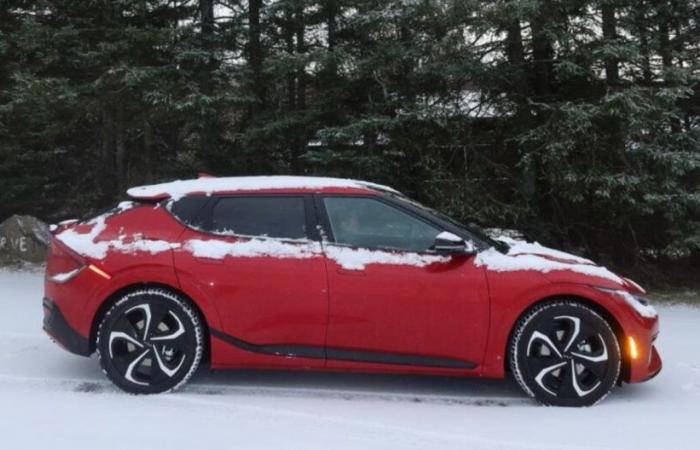Electric car charging
A full-scale experiment reveals surprising results on the ability of electric vehicle batteries to retain their charge, even in unfavorable conditions. Can an electric car really remain parked for several weeks without significantly losing its range? The data collected challenges certain preconceived ideas.
A revealing test with the Kia EV6
The Kia EV6 Dual-Motor AWD Windendowed with official autonomy of 454 kilometerswas subjected to a particularly demanding test. Parked in an unheated garage for 28 consecutive dayswithout any connection to a charging station, the car faced temperatures oscillating between -11°C and 12°C. The vehicle was left with a load of 80%corresponding to 294 kilometers of autonomy.


Performance that defies expectations
The results are edifying: after four weeks of exposure to the cold, the loss of autonomy proved almost non-existent. The meter only showed a drop of 2% chargeor approximately 5 kilometers of autonomy. These figures contradict widespread fears about the vulnerability of lithium-ion batteries to low temperatures.
Manufacturers’ recommendations for long-term storage
Each manufacturer offers its own guidelines for extended storage:
- Hyundai/Kia: keep the vehicle plugged in for optimal automatic charge management
- Ford: for the Mustang Mach-E, unplug at 50% charge and disconnect the 12V battery after 30 days
- Tesla: keep the vehicle plugged in and deactivate energy-consuming functions like Sentinel mode
Practical advice for optimal conservation
For storage exceeding three months, here is a comparative table of best practices:
| Duration | Recommended charge level | Verification frequency |
|---|---|---|
| 1-4 weeks | 70-80% | None necessary |
| 1-3 months | 50-70% | Monthly |
| +3 months | 40-60% | Quarterly with refill |
Electric vehicles demonstrate remarkable resilience in the face of periods of prolonged downtime. This ability to maintain their charge even surpasses that of thermal vehicles, which often require special precautions for prolonged storage: risk of 12V battery discharge, fuel evaporation or fluid degradation.
-Technological advances in batteries lithium-ion and their sophisticated management systems now allow owners of electric cars to travel peacefully, without fear of finding their vehicle completely discharged on their return.
Source : InsideEVs
Written by Alexandra Dujonc
After studying electrical engineering, I worked on research and development projects aimed at improving the charging capacity of electric cars, which I made into my specialty! I put my in-depth knowledge on the subject of electric charging at your disposal.
React to the article
Canada







